Anything that seems too good to be true probably is. Recent statistics from the Federal Trade Commission show that consumers reported losing more than $5.8 billion to fraud in 2021, an increase of more than 70% from the year before. Over $2.3 billion, up from $1.2 billion in 2018, was lost to imposter scams by consumers in 2020, with over $392 million of those losses attributed to internet sales, up from $246 million in 2018.
These alarming numbers are increasing yearly. For this reason, if you want to protect yourself against being a part of this statistic, you must constantly be on the alert for consumer fraud. Consumer fraud is often defined as deceptive business practices that cause losses for customers, whether those losses are monetary or not. When someone commits fraud against a customer, they frequently steal the money right out of their hands and engage in deceptive or false advertising.
Consumer protection laws shield consumers from dishonest corporate tactics, subpar products, and potentially hazardous goods and services. Consumer protection laws are essential to a reliable market economy because they guarantee vendors' integrity and protect consumers from unpleasant surprises. With the growth of modern economies, laws defending consumers from large corporations and strategies like adhesion contracts—which common law fraud does not address—are constantly evolving.
Healthcare fraud is not a victimless crime. Everyone is impacted by healthcare fraud, which annually costs the economy tens of billions of dollars. When a product makes claims about being able to prevent, treat, or cure a disease or another health issue but hasn't been shown to be safe and effective in those applications, it is engaging in a health fraud scam. Healthcare fraud is expensive and can delay the administration of accurate diagnoses and treatments. Healthcare fraud and abuse examples include:
There are many scams that involve healthcare consumer fraud. Healthcare providers may violate consumers' rights by engaging in insurance fraud, dishonest business practices, charging for services that were never delivered, excessive pricing, and the sale of defective or inferior products.
There are many distinct types of activity that might occasionally be referred to as medical malpractice. Healthcare fraud, which often involves actions made by medical workers who use medical treatments to improve their financial advantage, is sometimes seen as medical malpractice. Numerous healthcare professionals do tens of thousands of pointless medical procedures each year that are frequently unrelated to the patient's ailment. Because Medicare, Medicaid, and even private insurance companies pay the healthcare institution for longer stays and additional care for patients who need it to help prevent surgical complications, these unneeded surgeries are frequently performed.
It is the duty of pharmaceutical firms and drug producers to create safe medications and conduct all essential testing to determine whether a drug is suitable for human use. In order for customers to make an informed choice about the use of the drug, these enterprises must list and warn of any potential negative effects on the box.
In order to evaluate a device's level of safety and to publish any relevant disclaimers, manufacturers of medical devices must also carry out all essential testing. If they don't, you or someone close to you can experience negative effects or even wrongful death.
Automobile purchases are significant investments that should be thoroughly considered before being made. Before signing a sales contract, you should inspect and test-drive new cars. More significantly, though, you should do a lot of research about the car you want to buy before walking onto a dealership lot. The condition of used cars and the terms of the sale must be thoroughly investigated as part of the due diligence process. Any car purchase necessitates a healthy dosage of suspicion regarding the dealer's dependability. An entirely new set of concerns regarding consumer rights arises when all or a portion of the purchase price is financed. Consumer protection laws cover many of these risks, but consumers must also take precautions to protect themselves.
Auto dealer fraud generates various legal issues as compared to dangerous or faulty vehicles, as well as vehicles that do not meet the implicit guarantees of safety or performance. Vehicles that are unfit for public sale are subject to regional lemon laws as well as federal, state, and local goods liability regulations. Vehicle dealers that commit fraud are subject to regulations that forbid unfair or unethical business activities.
Auto dealer fraud frequently results from the concealment of a vehicle's used state. Even worse, the auto dealer might misrepresent the car's capabilities, model year, or any known problems. Deceptive trade practices like bait and switch are used to persuade customers who are looking for a deal to accept a different product at a higher price. Other pricing misrepresentations include inaccurate information about manufacturer discounts, assertions that the purchase price covers more than it actually does, and assertions that a particular price is book level or low when it is not.
Other examples of auto dealer fraud include charging hidden fees, representing purchase warranties falsely, and omitting to disclose existing defects in the vehicles. Dealers may also tamper with odometers to hide a vehicle's actual mileage before it is put up for sale.
Another common source of charges of fraud against auto dealers is yo-yo financing. This issue arises when a buyer purchases a car believing the transaction is complete. For instance, the buyer will purchase the vehicle and drive it home; then, the dealer contacts them to warn them that the financing "fell through" and that they must return the vehicle unless they agree to more unfavorable refinancing terms.
Consumers can take precautions to protect themselves by refusing pushy sales techniques, test-driving a car before buying it, and requiring a thorough visual check of a car. Customers should look to have a mechanic evaluate the used automobile before buying it from a private seller and inquire about the vehicle's repair history.
Identity theft is a serious criminal offense. It happens when someone commits fraud or another crime using your personal information—such as your name, Social Security number, or credit card number—without your consent. According to the Federal Trade Commission (FTC), up to 9 million Americans have their identities stolen each year.
Identity theft can be less harmful if privacy is carefully protected. Here are some tips for keeping your personal information and yourself safe.
Every year, thousands of consumers suffer injuries as a result of dangerous or otherwise defective goods. You might be covered by a warranty or, at the very least, have the option to return the item for a refund or exchange if you buy a product that just does not work as described but has not actually hurt you.
Anything you purchase has a right to be expected to be secure for the purpose for which it was designed. It is the responsibility of large companies and product manufacturers to create and produce safe items and to include all necessary disclaimers and warnings. In the event that the manufacturer breaches this duty and you suffer harm as a result of a dangerous or faulty product, you should speak with a knowledgeable defective product liability attorney.
Simply defined, if a product's subpar design or production causes you harm, you have a claim to justice and financial compensation. In this trying time, you deserve a product liability attorney who will fight for you.
Customers frequently grant businesses access to personal data that is typically considered to be "private," such as names, addresses, financial account numbers, health information, and other specifics. Few laws and enforcement methods are in place in our legal system to safeguard consumers against data breaches that may expose them to identity theft and other unlawful actions. The courts have similarly given a basic right to privacy relatively little attention. Most laws that protect the confidentiality of a customer's personal information fall into one of two categories: either they forbid unauthorized access to computer systems, or they shield particular kinds of data from disclosure.
A "data breach" is the term used to describe any release of private, sensitive, confidential, or proprietary information into an unsecured or unreliable environment where it might be accessed by anybody via the internet, another computer, or a computer network. It's possible that a person in charge of the data's security accidentally or purposefully disclosed the information or that it happened as a result of an unlawful entrance into a secured computer network.
According to CNN Business, the global hotel giant Marriott learned in 2018 that the Starwood reservation system had been breached. Marriott took control of Starwood in 2016. The St. Regis, Westin, Sheraton, and W Hotels were among the establishments in the Starwood hotel portfolio. Three hundred twenty-seven million users' information, including names, phone numbers, email addresses, dates of birth, and reservation details, were exposed The Marriott data breach is the second-largest corporate data leak in history, only behind the Yahoo data breach in 2017.
Like every serious problem in the world, it cannot be solved in a simple way. However, everyone may contribute if they choose wisely. In the same way that healthcare providers cannot maintain public health at acceptable levels if the majority of the population does not practice good hygiene, cyber security specialists cannot fix the issue without the public's assistance. Only by working together and treating our online security as well as our digital well-being can data breaches be avoided.
Tragically, consumer fraud is on the rise in our society. We constantly hear about identity theft, credit card theft, investment fraud, CEO embezzlement, and everyday Joes being taken advantage of at the local auto dealer. If you've suffered a financial or personal loss due to unethical, unfair, fraudulent, deceptive, or misleading company activity, whether it happened online, in person, or over the phone, you should think about speaking with an experienced consumer and business fraud attorney.
